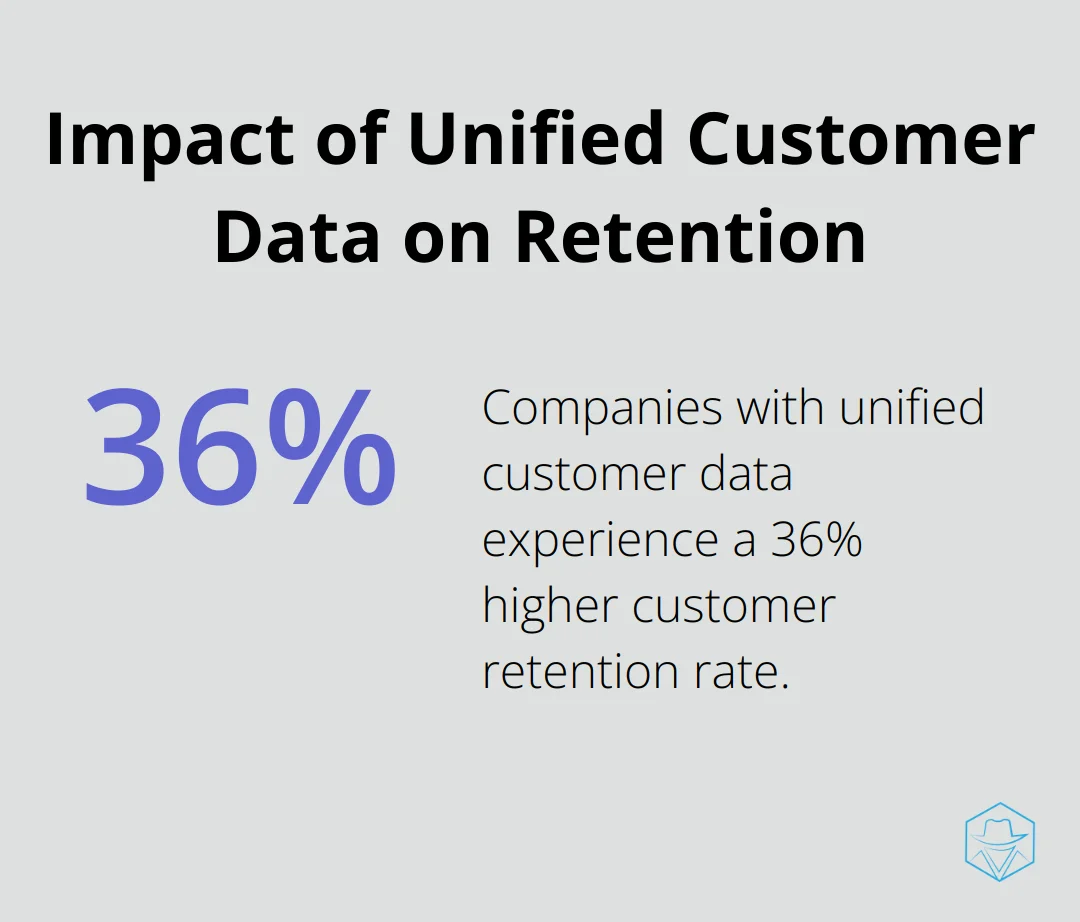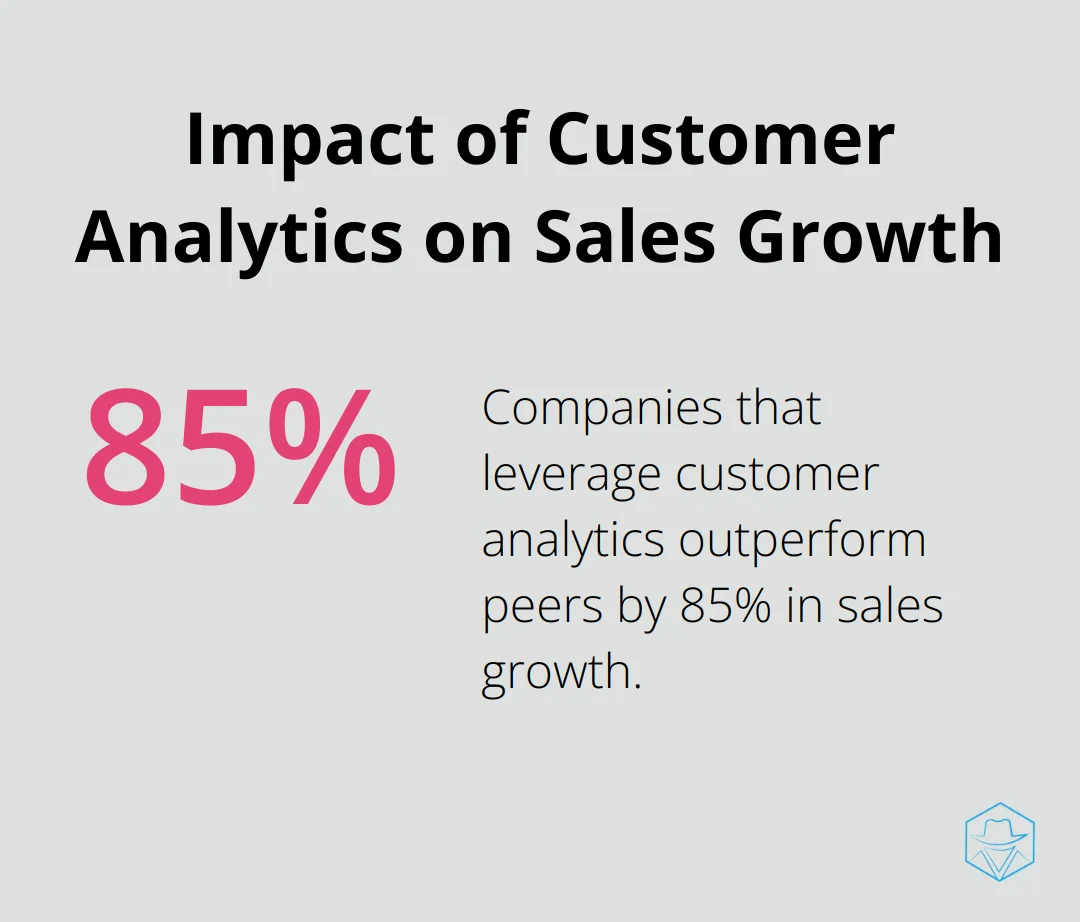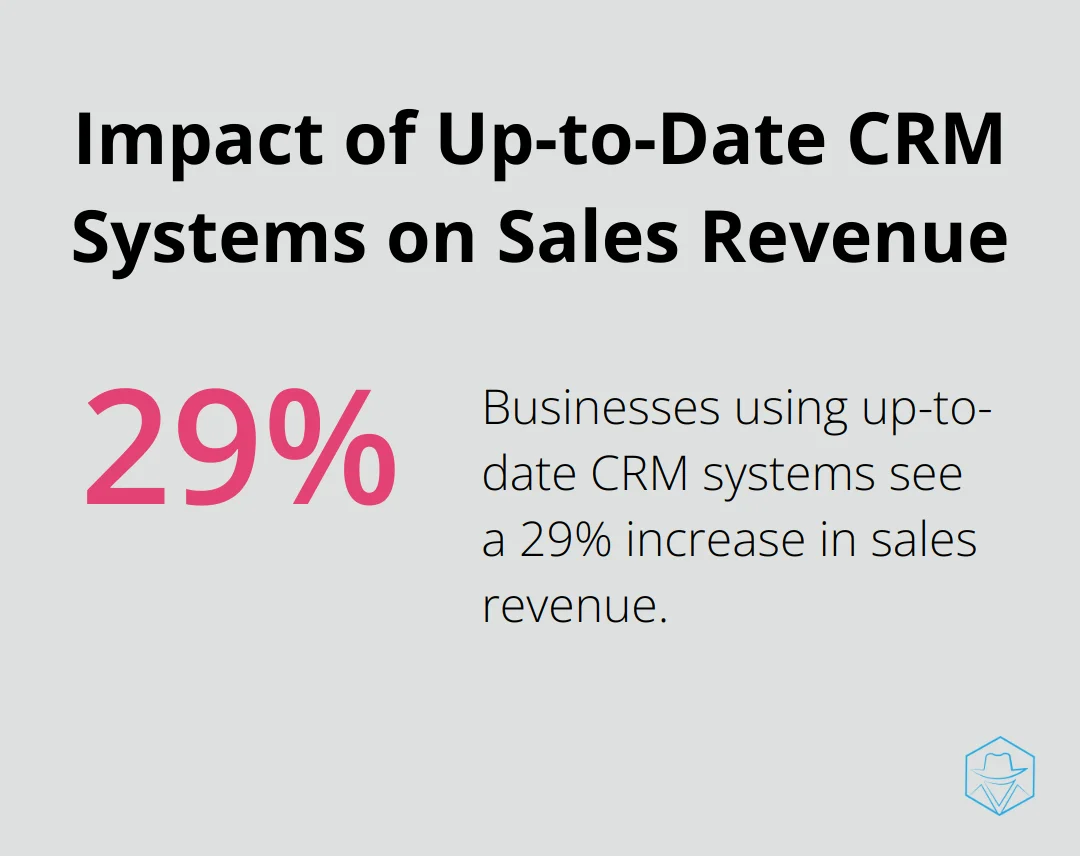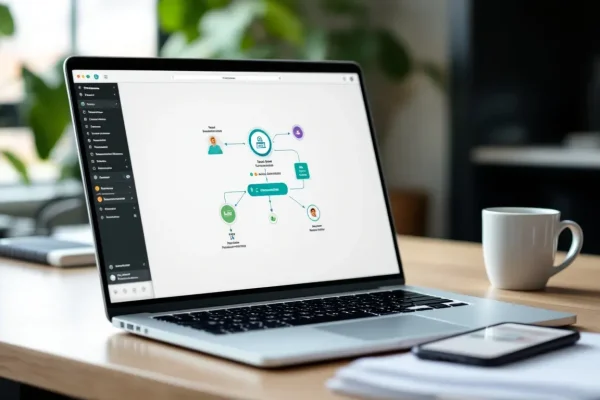Call Center CRM Systems: Improve Customer Interactions

At Drop Cowboy, we understand the importance of efficient customer interactions in call centers.
Call center CRM systems are revolutionizing how businesses manage customer relationships and streamline operations.
These powerful tools offer a range of features that can significantly improve customer service quality and agent productivity.
What Makes Call Center CRM Systems Powerful?
Call center CRM systems form the backbone of modern customer service operations. These systems transform customer interactions through several key features. Let’s explore what makes them indispensable.
Centralized Customer Data Management
The core strength of any CRM system lies in its ability to centralize customer data. This feature enables agents to access a customer’s complete history, preferences, and past interactions within seconds. A study by Aberdeen Group reveals that companies with unified customer data experience a 36% higher customer retention rate. This centralization results in faster problem resolution and more personalized service.

Comprehensive Interaction Tracking
CRM systems excel at tracking every customer touchpoint. All interactions (phone calls, emails, chats) are logged and easily accessible. This comprehensive view allows agents to continue from where the last conversation ended, eliminating the need for customers to repeat information. Salesforce reports that CRM applications can enable personalized communication at scale, which is crucial for customer retention.
Smart Call Distribution
Modern CRM systems have moved beyond random call routing. They now use intelligent algorithms to distribute calls based on agent skills, availability, and customer needs. This smart distribution can cut wait times by up to 40% and boost first-call resolution rates. For example, if a customer previously discussed a complex issue with a specific agent, the system can route future calls from that customer to the same agent for continuity.
Real-time Analytics and Reporting
Data plays a crucial role in call center operations. CRM systems provide real-time analytics that allow managers to make informed decisions quickly. These analytics cover a wide range of metrics, from call volumes and average handling times to customer satisfaction scores. McKinsey’s research indicates that data-driven organizations are 23 times more likely to acquire customers and 6 times more likely to retain them.
Customizable Workflows
CRM systems offer customizable workflows that adapt to specific business needs. This flexibility allows call centers to create efficient processes tailored to their unique requirements. For instance, a workflow might automatically escalate certain types of customer issues or trigger follow-up actions based on specific call outcomes.
The power of these features extends beyond mere data storage. They transform raw data into actionable insights that drive better customer experiences and business outcomes. As we move to the next section, we’ll explore how these powerful features translate into tangible benefits for call centers and their customers.
How CRM Boosts Call Center Performance
CRM systems transform call center operations, enhancing customer satisfaction and operational efficiency. Let’s explore the key benefits of implementing CRM in call centers.
Enhanced Customer Experiences
CRM systems revolutionize customer experiences by providing agents with instant access to comprehensive customer profiles. This access enables personalized interactions that make customers feel valued and understood. A Salesforce study revealed that 76% of consumers expect companies to understand their needs and expectations. With CRM, agents can quickly retrieve past interactions, preferences, and purchase history, allowing them to tailor their approach and offer more relevant solutions.
Consider this scenario: A customer previously inquired about a specific product feature. In future interactions, the agent can proactively address this topic. This level of personalization not only enhances customer satisfaction but also increases the likelihood of successful upselling or cross-selling opportunities.
Increased Agent Productivity
CRM systems significantly boost agent productivity by streamlining workflows and automating routine tasks. A Nucleus Research report indicates that CRM can increase sales productivity by up to 34%. In call centers, this translates to faster call resolution times and increased call handling capacity.
Automated data entry frees up agents to focus on high-value tasks like problem-solving and relationship building. Smart call routing ensures that calls are directed to the most qualified agent, reducing transfer rates and improving first-call resolution. These efficiency gains not only improve customer satisfaction but also contribute to higher job satisfaction among agents (potentially reducing turnover rates in call centers).
Data-Driven Decision Making
CRM systems provide real-time analytics and reporting capabilities that empower managers to make informed decisions quickly. McKinsey reports that companies that leverage customer analytics outperform peers by 85% in sales growth and more than 25% in gross margin.
Call center managers can use CRM data to identify trends, forecast call volumes, and optimize staffing levels. For example, if the CRM system shows a spike in calls related to a specific product issue, managers can quickly allocate resources to address the problem and potentially prevent future calls on the same topic.

Streamlined Communication
CRM systems facilitate seamless communication both internally and externally. Agents can easily collaborate on complex cases, share knowledge, and maintain consistent messaging across all customer touchpoints. This streamlined communication ensures that customers receive accurate and timely information, regardless of which agent they interact with.
Improved Compliance and Security
Modern CRM systems come with built-in compliance and security features. These tools help call centers adhere to industry regulations (such as GDPR or HIPAA) and protect sensitive customer data. Automated compliance checks and secure data storage reduce the risk of costly data breaches and regulatory fines.
As we move forward, it’s essential to understand that the benefits of CRM in call centers extend beyond these immediate improvements. The next section will explore best practices for implementing CRM systems to maximize their potential and drive long-term success.
How to Implement CRM in Your Call Center
Set Clear, Measurable Goals
Define specific objectives for your CRM implementation. You might aim to reduce average handle time by 20% or increase customer satisfaction scores by 15%. Quantifiable goals will guide your implementation strategy and help you measure success. A study by Forrester Research found that companies with well-defined CRM strategies see an ROI of up to 245%.
Select the Right CRM for Your Needs
Evaluate multiple CRM options based on your call center’s unique requirements. Consider factors like scalability, integration capabilities, and specific features that align with your goals. If you handle high call volumes, prioritize a CRM with robust automated call distribution. (Gartner reports that 91% of businesses with over 11 employees now use CRM, underscoring its importance in modern business operations.)
Invest in Comprehensive Training
Your CRM’s effectiveness depends on the people using it. Provide thorough training for all staff members, from agents to managers. This should be an ongoing process to ensure your team stays up-to-date with new features and best practices. A report by Accenture indicates that companies prioritizing CRM training see a 10% increase in customer retention rates.
Ensure Seamless Integration
Make sure your new CRM integrates smoothly with existing systems like your phone system, helpdesk software, and marketing tools. This integration creates a unified ecosystem, prevents data silos, and provides a 360-degree view of customer interactions. (Companies with integrated CRM systems see a 36% higher customer retention rate compared to those without integration, according to Aberdeen Group.)
Perform Regular Maintenance and Updates
CRM implementation requires ongoing attention. Schedule periodic reviews to assess system performance, gather user feedback, and identify areas for improvement. Stay informed about new features and updates from your CRM provider. Businesses using up-to-date CRM systems see a 29% increase in sales revenue, as reported by Salesforce.

Wrapping Up
Call center CRM systems have become essential tools for businesses that want to improve their customer service and operational efficiency. These platforms offer numerous benefits, including centralized customer data, intelligent call distribution, and real-time analytics. Companies that implement CRM systems can enhance customer experiences, increase agent productivity, and make data-driven decisions that fuel business growth.
The future of call center CRM technology continues to evolve rapidly. We see increased integration of artificial intelligence and machine learning capabilities, which enable more sophisticated predictive analytics and automated customer interactions. Voice recognition and natural language processing advancements allow for more nuanced and efficient customer communications.
As customer expectations rise, businesses must leverage cutting-edge communication tools to stay competitive. Drop Cowboy offers an innovative platform that complements call center CRM systems, providing features like ringless voicemail and SMS integration to enhance customer engagement strategies. Companies that combine the power of CRM with advanced communication technologies can create exceptional customer experiences that drive loyalty and growth.
blog-dropcowboy-com
Related posts

April 3, 2025
Automation in Content Marketing: Tips and Tricks
Boost efficiency with automation content marketing tips. Discover strategies, tools, and trends to streamline your efforts and enhance productivity.

May 6, 2025
Best Marketing Automation CRMs for Your Business
Explore the best marketing automation CRMs to streamline operations and boost efficiency in your business with proven tools and strategies.

April 9, 2025
Examples of Successful Marketing Automation Campaigns
Explore powerful examples of marketing automation campaigns that boosted engagement and sales, showcasing real-world successes.

September 3, 2025
Innovative Applications of Voice Cloning in Customer Service
Explore voice cloning applications in customer service, enhancing efficiency and personalization. See how innovation reshapes customer interactions.

March 7, 2025
Proven Text Marketing Strategies for Business Growth
Boost growth with proven text marketing strategies. Engage customers effectively and elevate your business with practical, data-driven insights.

May 6, 2025
Marketing Automation for SaaS: Boost Your Growth
Boost SaaS growth with marketing automation. Explore proven strategies, real case studies, and tools to drive success in the competitive SaaS market.